You may have noticed lately that the days are getting the tiniest bit longer. The buds on the trees are beginning to swell and the leaves on the tulips and daffodil bulbs are attempting to peek through the mulch. Some heartening signs of spring but the truth is… we are still deeply embedded in winter. The verdant awakening of spring is still on hold.
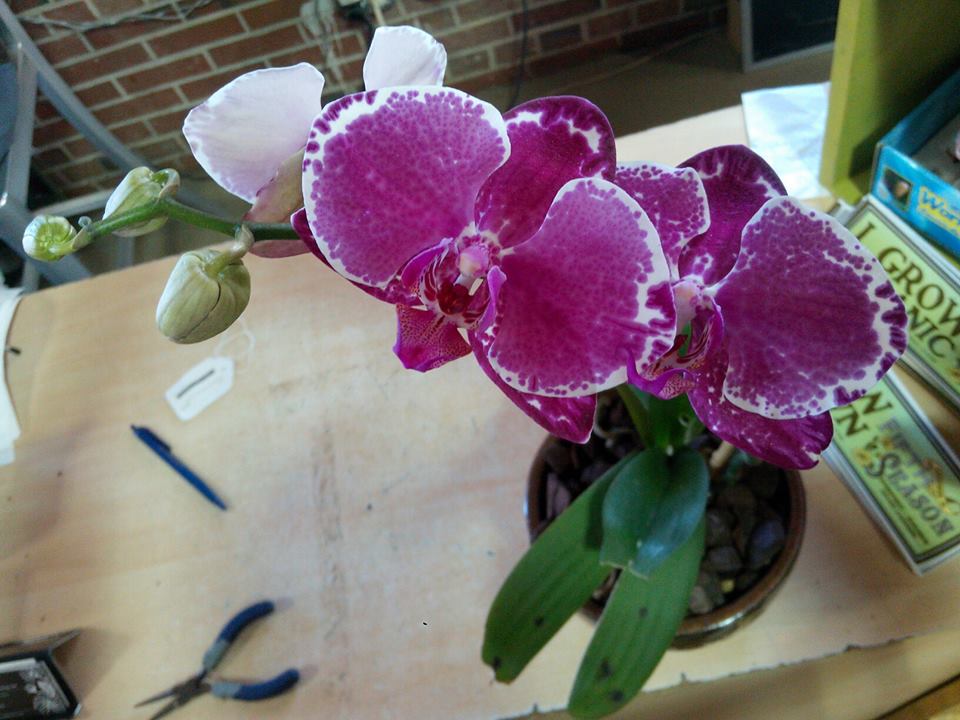
You have probably also noticed that your houseplants are enjoying a bit of a rest as well. Most tropical plants will go through a dormant period when the days are shorter and the air is dryer and cooler. They will be putting new growth on hold until they begin to see longer days. Pruning and pest prevention are tops on the to-do list for this time of year. This is also a good time to up-pot some varieties of tropical plants, others not so much.
Pests on your tropical plants during winter is a major detriment to the health of your plants. There are no natural predators around this time of year to take care of pests for you. If you have plants that spend the summer outdoors you can be sure that some unwanted bugs have “hitchhiked” their way inside with your plants.
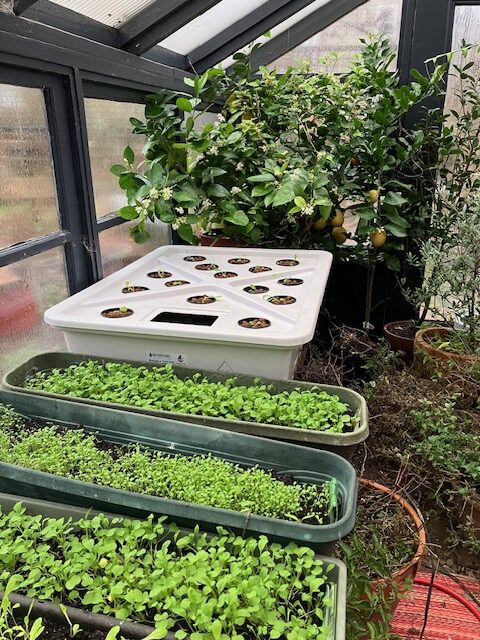
Some woody plants such as citrus, bay trees, woody herbs and olive trees, that summer outdoors, always come in with mealy bugs, scale and spider mites. Horticultural oil is a perfect remedy for these particular bugs. I wouldn’t use Horticultural oil on plants that have more delicate leaves or stems. It is water soluble, so it doesn’t have the effect of making most tropical plants as photosensitive as other oil-based insect sprays. Some plants with more sensitive leaves can benefit from being sprayed with Safer insecticidal soap.
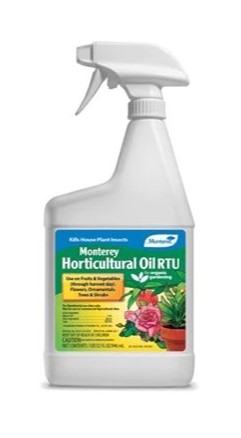
Ferns, palms, dracaena, some philodendrons and orchids, which can be very sensitive to anything being sprayed on their leaves, would benefit from an organic systemic product called SNS 209. It is made from an extract of rosemary and is quite effective in warding off soft and hard bodied bugs such as scale, mealy bugs, spider mites, white fly and aphids. Keeping up a consistent regimen of treatment throughout the winter is important for the health of your plants.
The later winter months are a good time to repot or root prune your citrus trees, bonsai and dormant orchids and many other tropical plants. It’s best to wait until just before they begin their active growth. It’s also a perfect time to take root, stem or leaf cuttings from plants you want to propagate. African violets, gloxinia, streptocarpus, scented geraniums and any number of wintered-over annual flowering plants can be propagated easily in a little greenhouse Nanodome. Check all of your plants for any roots that are growing out the bottom of the pots that may clog up the drainage holes, root prune or up-pot these plants so they won’t end up drowning in their pots.
Most tropical plants will need higher humidity during the winter months when the air is much dryer. Grouping your plants together and placing them in trays with wet pebbles will help to raise the humidity levels. Tropical citrus will benefit from misting on the leaves twice a day.
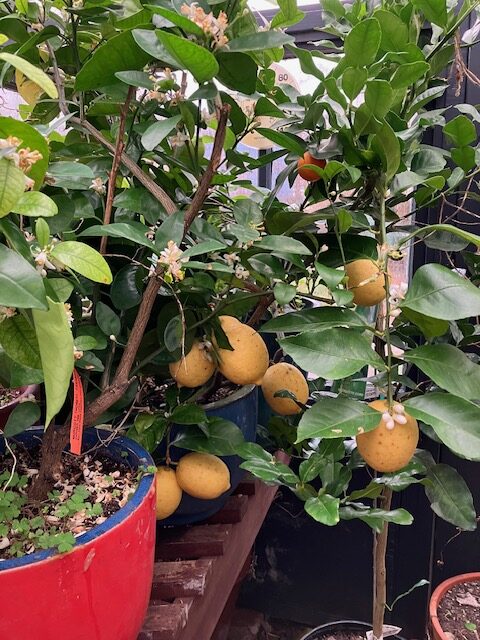
Keep your plants away from drafty doors and windows. Dracaenas, Aralias and Alocasias are particularly sensitive to drafts. Make sure that if your plant is in a window that the leaves don’t touch the cold window, this may freeze or damage the leaf. Avoid placing your plants in a room with a gas burning fireplace, the fumes and dry air can damage some plants.
Wipe off the leaves of your tropical plants often. Clean leaves will aid the plant with better photosynthesis.
When your plants have slowed down their growth for the winter they will be drinking less water and absorbing fewer nutrients. Be sure not to drown your plants or burn them by over-watering or fertilizing. Cut back on nutrients and water until you notice active growth happening. They need a well deserved rest.
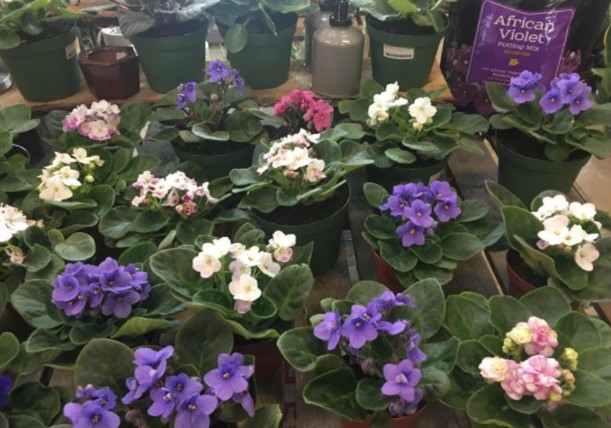
Finally, know that in winter the sun is lower in the sky and the rays from a south window are coming directly into the room. This may burn low light plants that are used to having the sun overhead in spring and summer. Move these plants away from the window to protect their leaves from sun scorch.
Plants that are receiving consistent care that simulates their optimal natural environment are more pest-free and easier to care for than plants that are stressed. Start your plants off with the right care early in the year and you will certainly be rewarded with healthy, happy plant friends for years to come.
Thank you for reading this article and best of luck!
-Pam Scott

Leave a Reply